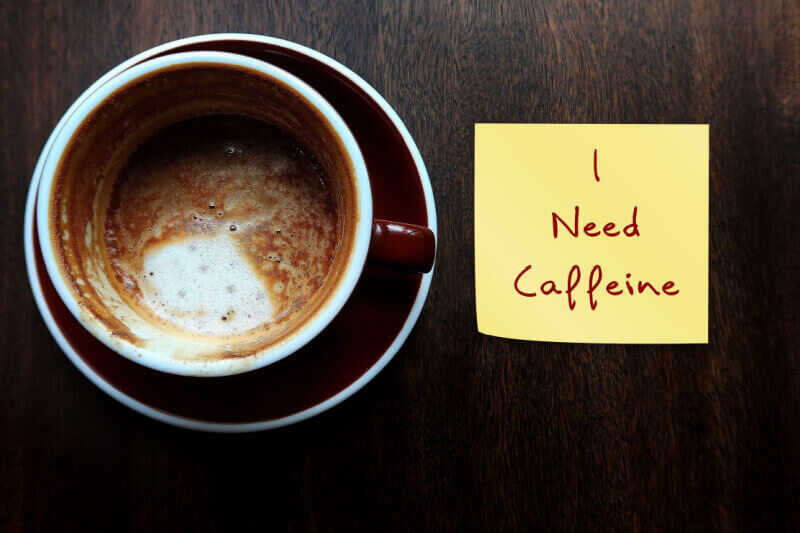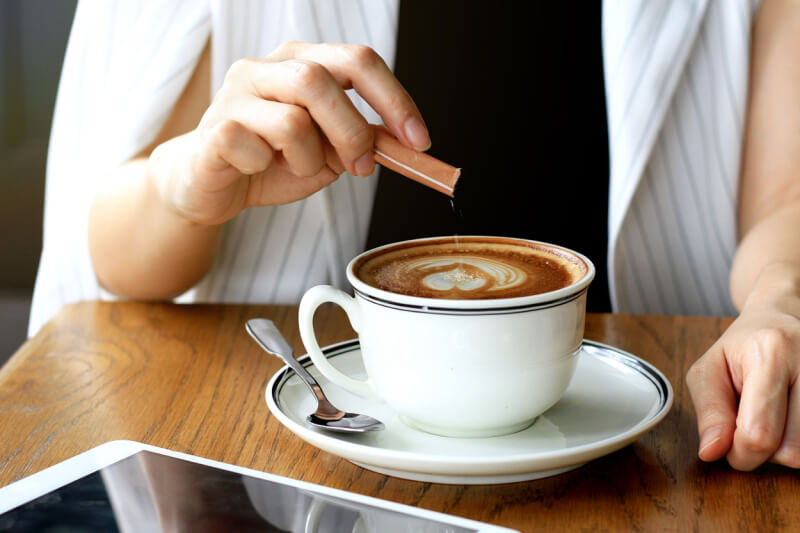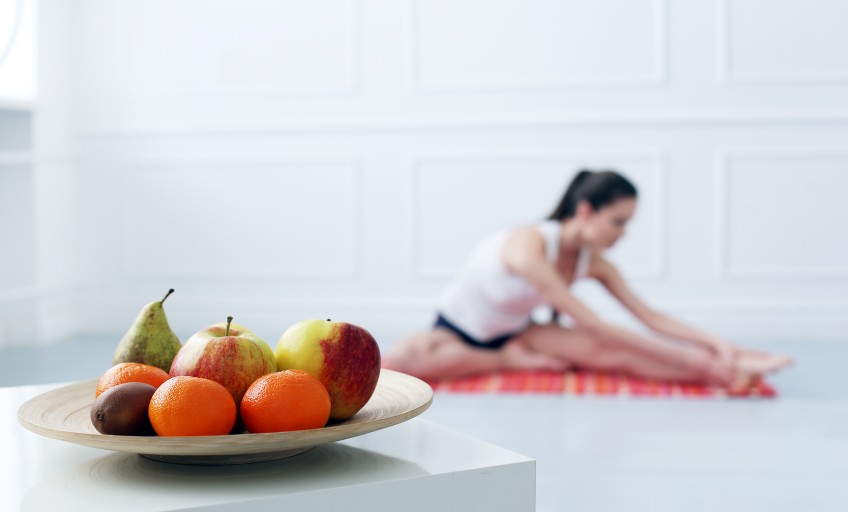Did you miss your cup of joe or tea and find it difficult to get through the day? We have all been there. Some sources of caffeine include coffee, tea, soda, cocoa, energy drinks, and some medications. So, the question remains—is caffeine good or bad for health?
इनके बारे में जानें:
- What is caffeine?
- Benefits of caffeine
- What are the side effects of too much caffeine?
- How to cut back on caffeine?
What is caffeine?
Caffeine is a natural stimulant commonly found in coffee, tea, and cacao plants. It stimulates the brain and central nervous system, helping you stay alert and preventing tiredness. Chemically, it is known as a xanthine alkaloid, which blocks the action of adenosine, a neurotransmitter that relaxes the brain and makes you tired. The recommended daily limit for caffeine is up to about four cups of coffee to avoid potential side effects like insomnia and heart palpitations. Regular consumption can lead to physical dependence, although it is safe in moderate amounts.
Benefits of caffeine
Some benefits of caffeine can be listed below:
- Many people rely on caffeine to stay awake and improve concentration.
- It can boost your mood, metabolism, and physical and mental performance.
- Caffeine blocks the effects of adenosine, a brain chemical that makes you feel tired, and triggers the release of the fight-or-flight adrenaline hormone, providing extra energy.
- Coffee contains laxatives that release the gastrin hormone, which speeds up activity in the colon and helps in bowel movement. Decaffeinated coffee produces the same response. Caffeine can increase peristalsis (contractions that move food through the digestive tract) to stimulate bowel movements.
Despite these benefits, one wonders if caffeine is good for health.
How much caffeine is good to have in a day?
Up to 400 milligrams of caffeine is considered healthy for the body. Anything beyond that can be harmful.

What are the side effects of too much caffeine?
Here are some side effects of consuming high doses of caffeine:
- High doses of caffeine can lead to nervousness and anxiety. Consuming in one sitting can cause jitteriness, rapid breathing, and increased stress.
- Although caffeine can help people stay awake, too much of it can disrupt your ability to get restorative sleep. Caffeine side effects can result in insomnia. Caffeine intake increases the amount of time it takes to fall asleep. When consumed later in the day, caffeine may interrupt your sleep pattern, as it may take hours for its effects to wear off.
- Caffeine side effects include aerobic exercises. Large doses can result in diarrhea.
- Caffeine can also be a possible trigger for heartburn or gastroesophageal reflux disease (GERD).
- Mixing caffeine with some medications can cause seizures, हाई ब्लड प्रेशर, or nausea. Talk to your doctor to ensure caffeine intake does not affect your medications.
- Using caffeine to cover up for sleep deprivation can disturb your body’s circadian rhythm. So, drinking caffeinated beverages to stay awake during the day will only disrupt your daytime alertness and keep you from falling asleep at night.
- Although caffeine has its share of benefits, one cannot deny that it can be a habit or an addiction, causing a physical or psychological dependency on coffee. The frequency of caffeine intake also plays a part in creating this dependency. If you skip your usual cup of coffee, you might face a splitting headache or experience rebound fatigue after the effect of coffee wears off.
- Due to its stimulatory effect on the nervous system, high caffeine intake can cause high blood pressure. If your blood pressure is consistently elevated, it may damage arteries over time and restrict blood flow to the brain and the heart, causing the risk of दिल की बीमारी or stroke.
- Caffeine side effects also include a rapid heart rate. Young adults who consume energy drinks can also experience an altered heartbeat rhythm, called atrial fibrillation.
- Drinking many caffeinated beverages may lead to frequent urination due to the compound’s stimulatory effect on the bladder. Caffeine side effects may also result in incontinence (involuntary urination) in people with healthy bladders. This diuretic effect can further result in dehydration.

Although adults may consume caffeine, it harms children, adolescents, and young adults. Pregnant women or lactating mothers should consult their doctors about their caffeine intake. Even a small amount of caffeine can trigger restlessness and sleeplessness for people sensitive to caffeine.
How to cut back on caffeine?
It is advisable you cut your caffeine intake by early afternoon to keep sleeping problems at bay. If you want this brew to have less control over you, try to cut back on this habit.
- Keep a tab on your caffeine intake in food or beverages. Read the labels to check the caffeine amount before you consume a product.
- Stopping coffee intake in one day is rather difficult. Instead, cut back gradually. Drink one cup less or drink out of small cups daily to reduce your intake. This will eventually minimize caffeine’s potential withdrawal effects.
- Shorten the brew time while making tea to reduce caffeine content.
Healthier alternatives to caffeine
You can also try the following healthier alternatives to caffeine:
- Instead of sipping on coffee early in the morning, try drinking lemon water, a calorie and caffeine-free beverage rich in vitamin C. Lemon water contains antioxidants that can boost your immune system and help you stay hydrated. You can switch it up a little and add a variety of flavors, including cucumber, mint leaves, watermelon, or basil.
- Diluted apple cider vinegar ferments crushed apples with yeast and bacteria. Acetic acid may benefit insulin sensitivity and blood sugar levels. Apple cider vinegar can keep you satiated and assist with weight management.
- Try drinking turmeric tea or herbal teas, such as chamomile, peppermint, green, or ginger tea. These teas can help you unwind, relax, and get proper sleep. They can also help improve blood circulation, reduce inflammation, and lower blood sugar levels.
- Coconut water is refreshing and can help you manage weight.
Too much of a good thing is a bad thing. So, cut down on your caffeine consumption and choose healthier alternatives.
Stay tuned to the Activ Living Community. Stay updated with the latest health tips and trends through expert videos, podcasts, articles, and much more on पोषण, फिटनेस, सचेतन, और लाइफस्टाइल से जुड़ी बीमारियां like Asthma, high Blood Pressure, Cholesterol, and Diabetes. Activ Living ke saath sahi sehat ki shuruaat ABHIkaro.
You may also be interested in the following blogs:
Popular Searches
Natural Beta blockers | How to cure depression | Summer activities for kids | High bp symptoms | HIIT workout | How to increase platelet count | Dash diet | सिस्टोलिक और डायस्टोलिक ब्लड प्रेशर | High blood sugar symptoms | Tabata workout | Push ups for beginners | Benefits of zumba | How to prevent breast cancer | Homeopathic medicine for asthma | Fruits to avoid in pcos | Neck pain relief exercises |Yoga for heart | Healthy soup recipes | Anti aging foods | Vitamin rich foods





 1800-270-7000
1800-270-7000







